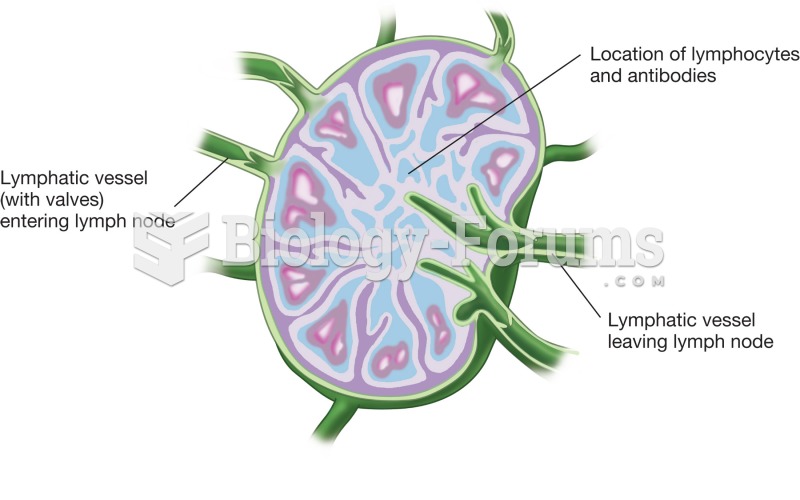|
|
|
When taking monoamine oxidase inhibitors, people should avoid a variety of foods, which include alcoholic beverages, bean curd, broad (fava) bean pods, cheese, fish, ginseng, protein extracts, meat, sauerkraut, shrimp paste, soups, and yeast.
The people with the highest levels of LDL are Mexican American males and non-Hispanic black females.
Hippocrates noted that blood separates into four differently colored liquids when removed from the body and examined: a pure red liquid mixed with white liquid material with a yellow-colored froth at the top and a black substance that settles underneath; he named these the four humors (for blood, phlegm, yellow bile, and black bile).
Though newer “smart” infusion pumps are increasingly becoming more sophisticated, they cannot prevent all programming and administration errors. Health care professionals that use smart infusion pumps must still practice the rights of medication administration and have other professionals double-check all high-risk infusions.
A seasonal flu vaccine is the best way to reduce the chances you will get seasonal influenza and spread it to others.
 The rotifer, Brachionus calyciflorus, is a large predator that consumes the smaller algae, Chlorella
The rotifer, Brachionus calyciflorus, is a large predator that consumes the smaller algae, Chlorella
 The American Lion was one of the abundant Pleistocene megafauna, a wide variety of very large mammal
The American Lion was one of the abundant Pleistocene megafauna, a wide variety of very large mammal





